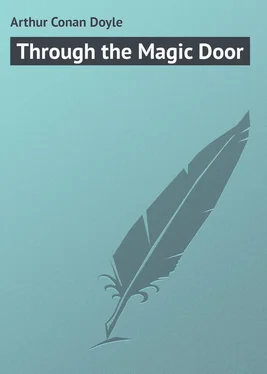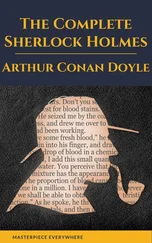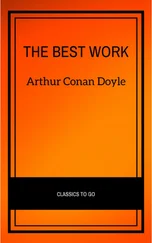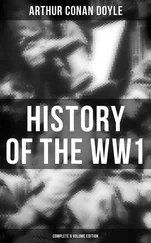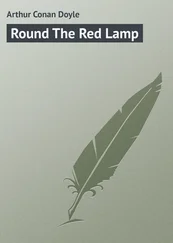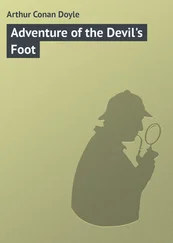Arthur Conan Doyle - Through the Magic Door
Здесь есть возможность читать онлайн «Arthur Conan Doyle - Through the Magic Door» — ознакомительный отрывок электронной книги совершенно бесплатно, а после прочтения отрывка купить полную версию. В некоторых случаях можно слушать аудио, скачать через торрент в формате fb2 и присутствует краткое содержание. Жанр: foreign_prose, на английском языке. Описание произведения, (предисловие) а так же отзывы посетителей доступны на портале библиотеки ЛибКат.
- Название:Through the Magic Door
- Автор:
- Жанр:
- Год:неизвестен
- ISBN:нет данных
- Рейтинг книги:3 / 5. Голосов: 1
-
Избранное:Добавить в избранное
- Отзывы:
-
Ваша оценка:
- 60
- 1
- 2
- 3
- 4
- 5
Through the Magic Door: краткое содержание, описание и аннотация
Предлагаем к чтению аннотацию, описание, краткое содержание или предисловие (зависит от того, что написал сам автор книги «Through the Magic Door»). Если вы не нашли необходимую информацию о книге — напишите в комментариях, мы постараемся отыскать её.
Through the Magic Door — читать онлайн ознакомительный отрывок
Ниже представлен текст книги, разбитый по страницам. Система сохранения места последней прочитанной страницы, позволяет с удобством читать онлайн бесплатно книгу «Through the Magic Door», без необходимости каждый раз заново искать на чём Вы остановились. Поставьте закладку, и сможете в любой момент перейти на страницу, на которой закончили чтение.
Интервал:
Закладка:
I wish Macaulay had written a historical novel. I am convinced that it would have been a great one. I do not know if he had the power of drawing an imaginary character, but he certainly had the gift of reconstructing a dead celebrity to a remarkable degree. Look at the simple half-paragraph in which he gives us Johnson and his atmosphere. Was ever a more definite picture given in a shorter space –
"As we close it, the club-room is before us, and the table on which stand the omelet for Nugent, and the lemons for Johnson. There are assembled those heads which live for ever on the canvas of Reynolds. There are the spectacles of Burke, and the tall thin form of Langton, the courtly sneer of Beauclerk and the beaming smile of Garrick, Gibbon tapping his snuff-box, and Sir Joshua with his trumpet in his ear. In the foreground is that strange figure which is as familiar to us as the figures of those among whom we have been brought up – the gigantic body, the huge massy face, seamed with the scars of disease, the brown coat, the black worsted stockings, the grey wig with the scorched foretop, the dirty hands, the nails bitten and pared to the quick. We see the eyes and mouth moving with convulsive twitches; we see the heavy form rolling; we hear it puffing, and then comes the 'Why, sir!' and the 'What then, sir?' and the 'No, sir!' and the 'You don't see your way through the question, sir!'"
It is etched into your memory for ever.
I can remember that when I visited London at the age of sixteen the first thing I did after housing my luggage was to make a pilgrimage to Macaulay's grave, where he lies in Westminster Abbey, just under the shadow of Addison, and amid the dust of the poets whom he had loved so well. It was the one great object of interest which London held for me. And so it might well be, when I think of all I owe him. It is not merely the knowledge and the stimulation of fresh interests, but it is the charming gentlemanly tone, the broad, liberal outlook, the general absence of bigotry and of prejudice. My judgment now confirms all that I felt for him then.
My four-volume edition of the History stands, as you see, to the right of the Essays. Do you recollect the third chapter of that work – the one which reconstructs the England of the seventeenth century? It has always seemed to me the very high-water mark of Macaulay's powers, with its marvellous mixture of precise fact and romantic phrasing. The population of towns, the statistics of commerce, the prosaic facts of life are all transmuted into wonder and interest by the handling of the master. You feel that he could have cast a glamour over the multiplication table had he set himself to do so. Take a single concrete example of what I mean. The fact that a Londoner in the country, or a countryman in London, felt equally out of place in those days of difficult travel, would seem to hardly require stating, and to afford no opportunity of leaving a strong impression upon the reader's mind. See what Macaulay makes of it, though it is no more than a hundred other paragraphs which discuss a hundred various points –
"A cockney in a rural village was stared at as much as if he had intruded into a kraal of Hottentots. On the other hand, when the lord of a Lincolnshire or Shropshire manor appeared in Fleet Street, he was as easily distinguished from the resident population as a Turk or a Lascar. His dress, his gait, his accent, the manner in which he gazed at the shops, stumbled into gutters, ran against the porters, and stood under the waterspouts, marked him out as an excellent subject for the operations of swindlers and banterers. Bullies jostled him into the kennel, Hackney coachmen splashed him from head to foot, thieves explored with perfect security the huge pockets of his horseman's coat, while he stood entranced by the splendour of the Lord Mayor's Show. Money-droppers, sore from the cart's tail, introduced themselves to him, and appeared to him the most honest friendly gentlemen that he had ever seen. Painted women, the refuse of Lewkner Lane and Whetstone Park, passed themselves on him for countesses and maids of honour. If he asked his way to St. James', his informants sent him to Mile End. If he went into a shop, he was instantly discerned to be a fit purchaser of everything that nobody else would buy, of second-hand embroidery, copper rings, and watches that would not go. If he rambled into any fashionable coffee-house, he became a mark for the insolent derision of fops, and the grave waggery of Templars. Enraged and mortified, he soon returned to his mansion, and there, in the homage of his tenants and the conversation of his boon companions, found consolation for the vexations and humiliations which he had undergone. There he was once more a great man, and saw nothing above himself except when at the assizes he took his seat on the bench near the Judge, or when at the muster of the militia he saluted the Lord Lieutenant."
On the whole, I should put this detached chapter of description at the very head of his Essays, though it happens to occur in another volume. The History as a whole does not, as it seems to me, reach the same level as the shorter articles. One cannot but feel that it is a brilliant piece of special pleading from a fervid Whig, and that there must be more to be said for the other side than is there set forth. Some of the Essays are tinged also, no doubt, by his own political and religious limitations. The best are those which get right away into the broad fields of literature and philosophy. Johnson, Walpole, Madame D'Arblay, Addison, and the two great Indian ones, Clive and Warren Hastings, are my own favourites. Frederick the Great, too, must surely stand in the first rank. Only one would I wish to eliminate. It is the diabolically clever criticism upon Montgomery. One would have wished to think that Macaulay's heart was too kind, and his soul too gentle, to pen so bitter an attack. Bad work will sink of its own weight. It is not necessary to souse the author as well. One would think more highly of the man if he had not done that savage bit of work.
I don't know why talking of Macaulay always makes me think of Scott, whose books in a faded, olive-backed line, have a shelf, you see, of their own. Perhaps it is that they both had so great an influence, and woke such admiration in me. Or perhaps it is the real similarity in the minds and characters of the two men. You don't see it, you say? Well, just think of Scott's "Border Ballads," and then of Macaulay's "Lays." The machines must be alike, when the products are so similar. Each was the only man who could possibly have written the poems of the other. What swing and dash in both of them! What a love of all that is and noble and martial! So simple, and yet so strong. But there are minds on which strength and simplicity are thrown away. They think that unless a thing is obscure it must be superficial, whereas it is often the shallow stream which is turbid, and the deep which is clear. Do you remember the fatuous criticism of Matthew Arnold upon the glorious "Lays," where he calls out "is this poetry?" after quoting –
"And how can man die better Than facing fearful odds For the ashes of his fathers And the Temples of his Gods?"
In trying to show that Macaulay had not the poetic sense he was really showing that he himself had not the dramatic sense. The baldness of the idea and of the language had evidently offended him. But this is exactly where the true merit lies. Macaulay is giving the rough, blunt words with which a simple-minded soldier appeals to two comrades to help him in a deed of valour. Any high-flown sentiment would have been absolutely out of character. The lines are, I think, taken with their context, admirable ballad poetry, and have just the dramatic quality and sense which a ballad poet must have. That opinion of Arnold's shook my faith in his judgment, and yet I would forgive a good deal to the man who wrote –
Читать дальшеИнтервал:
Закладка:
Похожие книги на «Through the Magic Door»
Представляем Вашему вниманию похожие книги на «Through the Magic Door» списком для выбора. Мы отобрали схожую по названию и смыслу литературу в надежде предоставить читателям больше вариантов отыскать новые, интересные, ещё непрочитанные произведения.
Обсуждение, отзывы о книге «Through the Magic Door» и просто собственные мнения читателей. Оставьте ваши комментарии, напишите, что Вы думаете о произведении, его смысле или главных героях. Укажите что конкретно понравилось, а что нет, и почему Вы так считаете.
